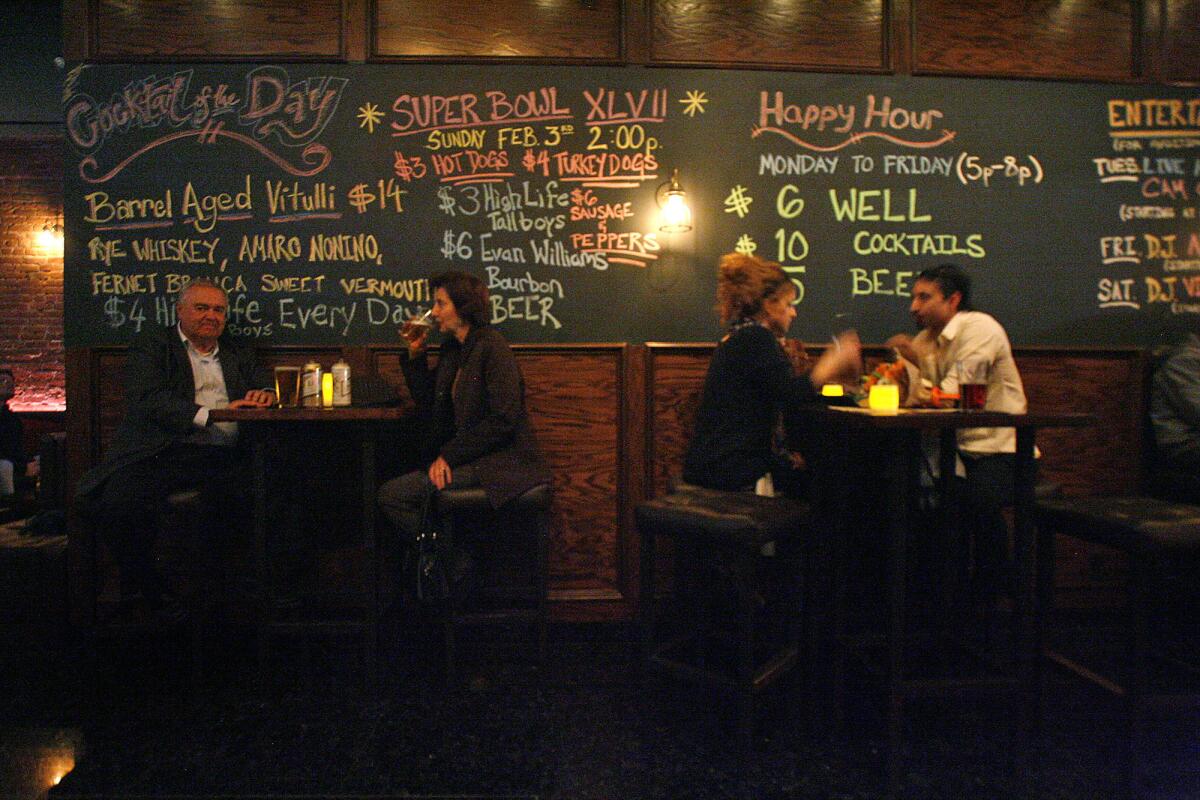Glendale hits its business goals

Glendale hit its economic development goals for the past fiscal year, with big businesses filling up office space and the city developing a nascent night-life sector, according to a recent city report.
Philip Lanzafame, Glendale’s officer for economic development, told the City Council that Glendale officials had three main priorities for the 2012-13 fiscal year: to attract more Class A Office occupants, focus on making Glendale an “18-hour city” and improve service to businesses.
Lanzafame said more office occupancy was important because additional workers mean more shoppers in the city, which translates into extra sales taxes into Glendale’s coffers.
“Increased occupancy delivers higher numbers of shoppers,” he said. “And there are more people per square foot in an occupied office building today than five years ago.”
Lanzafame cited as successes the arrival of large corporations such as Whole Foods and label-maker Avery Dennison, which moved its regional and national headquarters into Glendale during the 2012-13 fiscal year.
As of August, Glendale had an 18% vacancy rate for Class A office space, which is higher than the 14% and 16% rates in Pasadena and Burbank, respectively, but lower than the 20.7% vacancy rate in Glendale at the end of 2012.
The idea of an 18-hour city refers to having pedestrian activity in the city long after retail businesses close.
Lanzafame said that with the success of bars and restaurants such as The Famous, Glendale Tap and Eden Burger Bar, the city is finally moving in that direction.
“We also see a lot of continued interest from people like Yard House [restaurant] that want to be here and are just waiting for the exact right spot,” he said.
Sales taxes collected from restaurants and hotels went up 5.2% from the first quarter of 2012 to the first quarter of this year.
For next year, the city report said staff will continue to focus on creating an 18-hour city by recruiting operators of comedy clubs, brew pubs, wine bars and sports bars to open up shop in Glendale.
The report highlighted the importance of filling critical vacancies such as former Don Cuco restaurant on Brand Boulevard and La Cubana restaurant on Maryland Avenue.
Mayor Dave Weaver said he was happy to see the city transform in his 17 years on the council.
“I know I’ve sat here for at least 10 to 12 years when nothing was happening,” he said. “We had all this empty open space … and we said, ‘Gosh, when are we going to get the investments in this community?’”
Weaver said that with all the residential projects being built in Glendale, more night life is surely on the way.
“I know we’re going to outshine our neighbors pretty soon in entertainment values,” he said. “I’ve seen what Burbank is planning, and I think we’re doing more … it’s great what we’re seeing in this city.”
--
Follow Daniel Siegal on Google+ and on Twitter: @Daniel_Siegal.
ALSO:
Glendale City Council expected to approve 100th historic property
Glendale councilwoman urges Verdugo Wash support at Los Angeles River rally